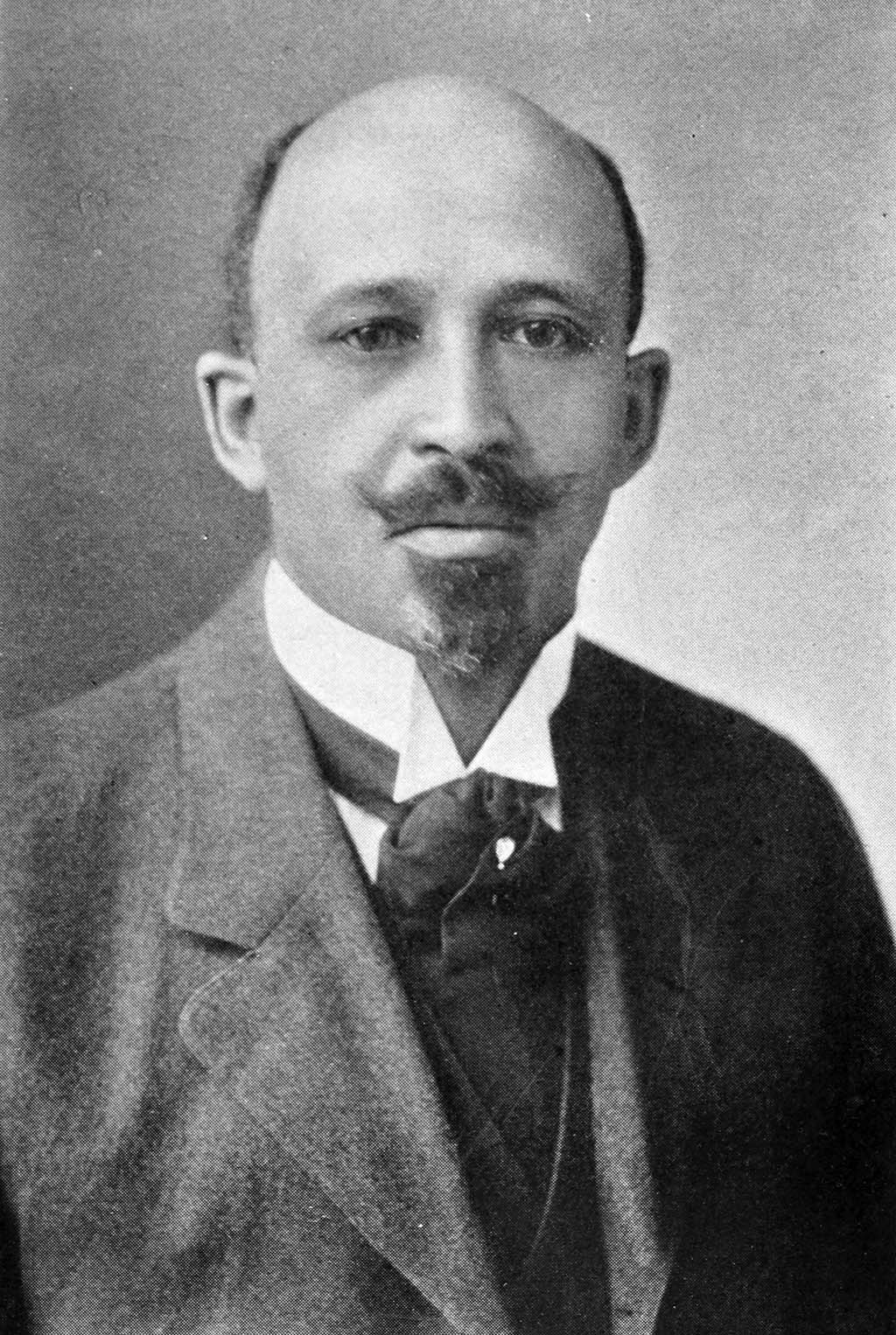W.E.B. Du Bois would eventually emerge as a founder of the NAACP, a leading human rights activists and the most important African American intellectual of the 20th Century. However those developments lay in the future when the 32-year-old DuBois gave the closing address at the first Pan African Convention. He used the occasion to utter one of his most quoted statements, “The problem of the twentieth century is the problem of the color line…” Du Bois’s remarks given on July 25, 1900 at the convention meeting site, Westminster Hall in London, appear below.
120th Anniversary of WEB DuBois’s Color Line Speech
In the metropolis of the modern world, in this the closing year of the nineteenth century, there has been assembled a congress of men and women of African blood, to deliberate solemnly upon the present situation and outlook of the darker races of mankind. The problem of the twentieth century is the problem of the color line, the question as to how far differences of race-which show themselves chiefly in the color of the skin and the texture of the hair-will hereafter be made the basis of denying to over half the world the right of sharing to utmost ability the opportunities and privileges of modern civilization.
To be sure, the darker races are today the least advanced in culture according to European standards. This has not, however, always been the case in the past. And certainly the world’s history, both ancient and modern, has given many instances of no despicable ability and capacity among the blackest races of men. In any case, the modern world must remember that in this age when the ends of the world are being brought so near together the millions of black men in Africa, America and the Islands of the Sea, not to speak of the brown and yellow myriads elsewhere, are bound to have a great influence upon the world in the future, by reason of sheer numbers and physical contact.
If now the world of culture bends itself towards giving Negroes and other dark men the largest and broadest opportunity for education and self-development, then this contact and influence is bound to have a beneficial effect upon the world and hasten human progress. But if, by reason of carelessness, prejudice, greed and injustice, the black world is to be exploited and ravished and degraded, the results must be deplorable, if not fatal-not simply to them, but to the high ideals of justice, freedom and culture which a thousand years of Christian civilization have held before Europe.
And now, therefore, to these ideals of civilization, to the broader humanity of the followers of the Prince of Peace, we, the men and women of Africa in world congress assembled, do now solemnly appeal: Let the world take no backward step in that slow but sure progress which has successively refused to let the spirit of class, of caste, of privilege, or of birth, debar from life, liberty and the pursuit of happiness a striving human soul. Let no color or race be a feature of distinction between white and black men, regardless of worth or ability.
Let not the natives of Africa be sacrificed to the greed of gold, their liberties taken away, their family life debauched, their just aspirations repressed, and avenues of advancement and culture taken from them. Let not the cloak of Christian missionary enterprise be allowed in the future, as so often in the past, to hide the ruthless economic exploitation and political downfall of less developed nations, whose chief fault has been reliance on the plighted faith of the Christian church.
Let the British nation, the first modern champion of Negro freedom, hasten to crown the work of Wilberforce, and Clarkson, and Buxton, and Sharpe, Bishop Colenso, and Livingston, and give as soon as practicable, the rights of responsible government to the black colonies of Africa and the West Indies. Let not the spirit of Garrison, Phillips, and Douglass wholly die out in America; may the conscience of a great nation rise and rebuke all dishonesty and unrighteous oppression toward the American Negro, and grant to him the right of franchise, security of person and property, and generous recognition of the great work he has accomplished in a generation toward raising nine millions of human beings from slavery to manhood.
Let the German Empire, and the French Republic, true to their great past, remember that the true worth of colonies lies in their prosperity and progress, and that justice, impartial alike to black and white, is the first element of prosperity. Let the Congo Free State become a great central Negro state of the world, and let its prosperity be counted not simply in cash and commerce, but in the happiness and true advancement to its black people.
Let the nations of the world respect the integrity and independence of the free Negro states of Abyssinia, Liberia, Haiti, and the rest, and let the inhabitants of these states, the independent tribes of Africa, the Negroes of the West Indies and America, and the black subjects of all nations take courage, strive ceaselessly, and fight bravely, that they may prove to the world their incontestable right to be counted among the great brotherhood of mankind. Thus we appeal with boldness and confidence to the Great Powers of the civilized world, trusting in the wide spirit of humanity, and the deep sense of justice and of our age, for a generous recognition of the righteousness of our cause.

